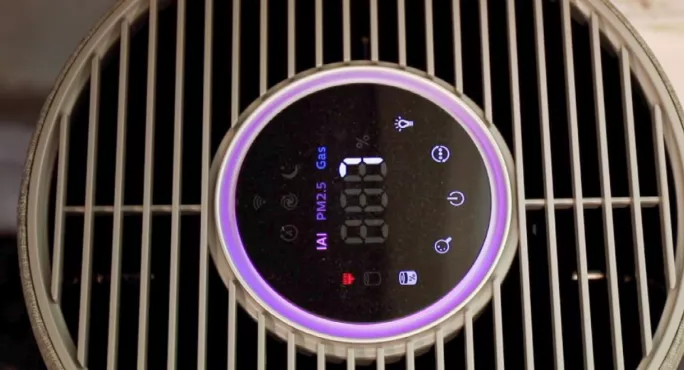Omicron: How schools can apply for air purifier units from the DfE

Schools can now apply to receive air purifiers from the Department for Education (DfE) in an attempt to reduce the spread of Covid.
The government is making 7,000 units available to state schools, colleges and early years settings following the provision of 1,000 units to special schools and alternative provision settings last year.
Here is everything you need to know about how to apply and the criteria the government will use to assess the applications.
Criticism: Air purifier plan described as ‘totally inadequate’
SEND: Special schools and alternative provision settings get 1,000 air purifiers
Heads: DfE criticised over cost of air cleaning units through its online marketplace
Who are the 7,000 air purifiers for?
In its announcement today the department said the 7,000 new air purifiers are being provided for early years settings, schools and colleges and will be for areas where quick fixes to improve ventilation are not possible - such as being able to open a window.
The DfE has said it will prioritise spaces with the poorest ventilation to receive units based on criteria such as CO2 readings and occupation density.
What criteria do primary and secondary schools need to meet?
In order to be able to apply for a device primary and secondary schools will have to be able to show:
- Sustained high CO2 readings: (1500ppm or higher) for at least one week while the room is occupied, despite taking all measures possible to improve ventilation - such as opening a window.
- Lengthy remedial building works are required to address poor ventilation and they cannot be completed before the end of February 2022.
- The DfE guidance says air cleaning units may be suitable while remedial work is undertaken to address the underlying ventilation issue but says they should not be used as a substitute for ventilation.
- Secondary and primary schools can only apply the air cleaning units for teaching spaces. They will not be provided for non-teaching rooms such as staff rooms, halls, corridors and dining rooms.
Is this the same criteria as for special schools and alternative provision settings?
The DfE has already made 1,000 air cleaning units available to special schools and AP settings.
The criteria for these schools is largely the same as for primary and secondaries.
However special schools and AP settings can apply for units in teaching spaces and staff rooms.
The DfE’s guidance says it using different criteria for these schools because of the “higher-than-average number of vulnerable pupils attending those settings”.
Can special schools and AP setting apply for devices in the latest round?
Yes. The DfE guidance says that any special and AP settings, including SEND units attached to mainstream schools, that were not successful or did not apply during the first round of 1,000 units the department made available are also eligible to apply alongside mainstream schools for this round of 7,000 new units.
Can schools who have already bought air purifiers be reimbursed?
The DfE had previously signposted schools to an online marketplace to purchase air purifiers.
This has been criticised as being too expensive by some heads.
The new guidance says that if schools purchased air cleaning units through the online marketplace and meet the eligibility criteria for a DfE-funded unit then they will be reimbursed.
It says that further information about the process for claiming this cost back will be provided soon.
However the guidance does not say whether schools who purchased air purifiers off their own back without using the online marketplace can be reimbursed.
Where can schools apply?
- Mainstream schools can apply online via this page.
- SEND and Alternative Provision settings can apply here.
- A full breakdown of the criteria and requirements is available here.
Will this remove the need for ventilation work?
The DfE says air cleaning units can help reduce airborne contaminants in a poorly ventilated space. But it adds that they should only be used while remedial work is undertaken to address the underlying ventilation issue.
It adds: “They are not a substitute for ventilation and should never be used as a reason to reduce or not remediate poor ventilation in the long term.
“It is for settings to decide whether an air cleaning unit would be suitable in line with their individual risk assessments. In making that decision, factors such as the size, occupancy and purpose of the room where you have identified poor ventilation should be considered.”
What should schools do if they do not meet the criteria?
The DfE guidance says that schools that do not meet the criteria to receive a free unit can use the online marketplace which it says “will enable schools to purchase units at a suitable specification and competitive price”.
You need a Tes subscription to read this article
Subscribe now to read this article and get other subscriber-only content:
- Unlimited access to all Tes magazine content
- Exclusive subscriber-only stories
- Award-winning email newsletters
Already a subscriber? Log in
You need a subscription to read this article
Subscribe now to read this article and get other subscriber-only content, including:
- Unlimited access to all Tes magazine content
- Exclusive subscriber-only stories
- Award-winning email newsletters
topics in this article



